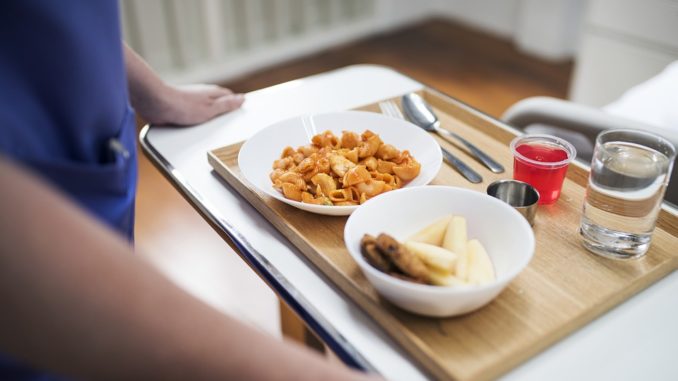
The Good Food Chain, the company at the heart of the listeria-contaminated sandwich scandal that caused the death of patients, has gone into liquidation. But the story does not end here. They were only a symptom of the dangers currently inherent in NHS food provision.
The Good Food Chain had been found by the Foods Standard Agency to not be the source of the listeria. It seems it originated with their supplier of cooked chicken, Northern Country Quality Foods. The Good Food Chain were given the all clear to resume production. But they faced a problem. They had to reapply for NHS accreditation. Given most of their business was with the NHS, the 43 NHS Trusts they supplied with cold meals, sandwiches and salads, they seemingly could not afford to wait around for that to happen.
The Good Food Chain was a small company. It only employed 125 people, similar in numbers to a large hospital kitchen. It had no particular skill in preparing food for sick patients. The only reason it was given the business was to save money.
Cutting costs, cutting corners
The process of outsourcing food production from hospitals has been ongoing since the 1980s. Most of the new-build PFI hospitals were only provided with kitchens suitable for reheating pre-prepared meals, not cooking from scratch. The drive has been to cut costs. Staff in private food production firms are frequently paid only the minimum wage. They do not receive NHS pay and conditions. They are not part of the NHS family and cannot be expected to have the same loyalty, and understanding, of the NHS that directly employed staff do.
At the same time as staff costs are being cut, so is the overall cost of patient meals. The Lord Carter review of NHS spending in 2016 specifically targeted food costs. The average cost of a patient meal then was £2.70. Carter asked why some trusts were spending 2.6 times more per meal than the least expensive ones. NHS Improvement is calling for further cuts this year.
That is why sandwiches and salads have become so popular with hospital administrators. There is no reheating needed and it takes less time and effort prior to being served on the wards. The regulator, the Food Standards Agency, has made this easier. In 2016 it relaxed its guidance that vulnerable patients should only be given sandwiches with a doctor’s approval. Now all that is expected is ‘good practice controls’ to manage risk. All the patients who died in this listeria outbreak were vulnerable. If the Food Standards Agency had not changed the rules, they might not have been given the contaminated sandwiches.
Nigel Hawkes in the BMJ points out that:
“If hospitals provided hot food, infection by listeria would be prevented”
A risk to health
The cost-drive shift to cold food increases the risk of these sort of outbreaks. It is not as though outsourcing has led to better quality of food. Research by the Campaign for Better Hospital Food in 2015 found that 1 in every 4 hospital meals was thrown away uneaten by the patients to whom they had been served. A survey by Unison earlier this year of NHS employees saw 53% of the respondents saying that they would not eat food prepared for patients.
Patient food now seems to be seen as primarily as a cost factor. It is usually listed under ‘Estates’ in lists of savings to be made. There must be a recognition that good nutritious, and attractive, food is a key part of the care that should be provided in our hospitals. Outsourced suppliers, sandwiches, and unappealing reheated meals do not meet the need.
Even NHS England have recognised that nutrition training is now ignored in medical schools. The Long-Term Plan says:
“Some courses have just eight hours, at most, over a five- or six-year degree”
Nurse training similarly rarely has more than a single lecture on nutrition in their training. And the professionals, the dieticians, as allied health professionals, are frequently in job roles that are amongst the first to be cut back when cost savings are made.
Further action is needed
If we want to avoid more tragedies like this listeria outbreak, we must reverse the current approach to food provision for patients. Keep Our NHS Public calls for patient nutrition to be considered centrally as a health issue not a cost issue. We call for the ending of outsourcing of catering and the reinstatement of hospital kitchens, staffed by NHS employees, that can provide the hot meals and specialised diets needed by patients. We call for NHS England to make good on their suggestion of the need to improve nutrition training for doctors, but also to extend it to nurse training, and to current staff who have received inadequate initial training.
Pete Gillard, Executive Committee member of Keep Our NHS Public
Want to help keep our NHS public?
Join Keep Our NHS Public today!


Now is the time to bring back our hospital kitchens and get patients food prepared and cooked freshly, using local healthy ingredients and getting patients that essential nutrient. It is now cheaper than the expensive back stop frozen meals
Meals would be far better prepared and cooked in-house. Meals at the moment bought in from outside re inedible. That surely is no good for patients who need tempting when they are not well.